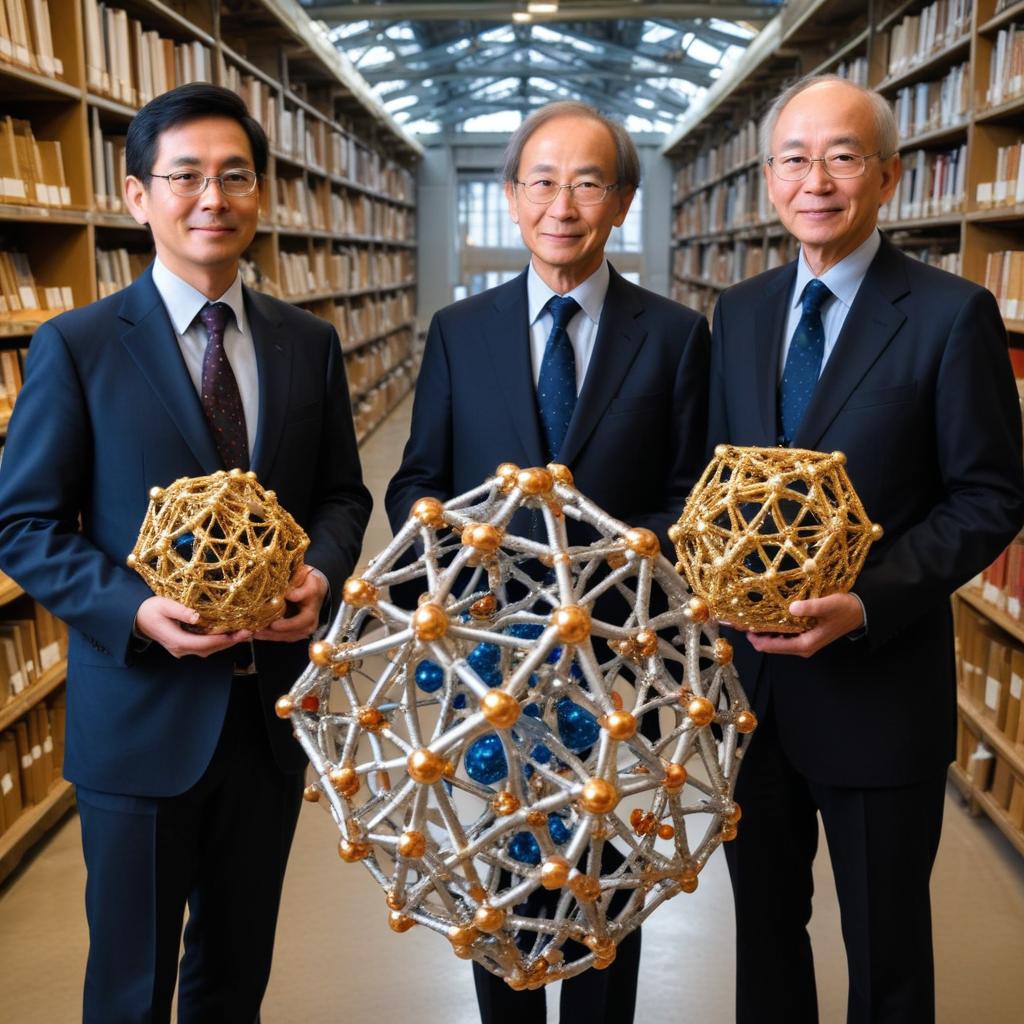Three scientists have won the Nobel Prize in chemistry for developing metal-organic frameworks (MOFs), molecular structures capable of trapping vast quantities of gas. This innovation holds immense potential for addressing global challenges like climate change, water scarcity, and even targeted drug delivery.
The 2025 Nobel Prize in chemistry has been awarded to Susumu Kitagawa, Richard Robson, and Omar M. Yaghi for their pioneering work on metal-organic frameworks (MOFs). These innovative molecular structures, likened to Hermione Granger's magical handbag for their ability to hold surprisingly large quantities within a small exterior, can trap gases and liquids. The scientists, working independently since the 1980s, devised stable atomic structures with customizable holes that allow specific molecules, such as carbon dioxide, methane, or water, to be efficiently stored or released. A small amount of MOF material, which combines metal nodes and organic rods, can possess a surface area equivalent to a soccer field, making it highly efficient for gas storage. This breakthrough offers solutions to some of humankind’s greatest challenges. Researchers are actively exploring MOFs for removing greenhouse gases from the atmosphere, cleaning pollution from industrial sites, and harvesting moisture from arid environments to provide drinking water. Additionally, MOFs are being investigated for targeted drug delivery, potentially releasing low doses of medicine, like cancer drugs, continually inside the body. While challenges remain in scaling these lab-based discoveries to real-world applications, such as maintaining efficiency at ambient temperatures and pressures, MOFs are already in use, for example, in packaging materials to prolong fruit freshness during shipping. The laureates reacted with a mix of surprise and delight. Omar M. Yaghi, upon receiving the call from Sweden while traveling, described the feeling as 'indescribable' and 'absolutely thrilling.' Susumu Kitagawa was initially skeptical, mistaking the call for telemarketing, but expressed his delight that the research, though widely recognized in chemistry, would now gain broader public understanding. Richard Robson, at 88, expressed being 'very pleased of course and a bit stunned as well.' The article also briefly mentions other 2025 Nobel Prizes awarded in medicine and physics, and outlines the upcoming announcements for literature, peace, and economics prizes, culminating in the award ceremony on December 10th.



